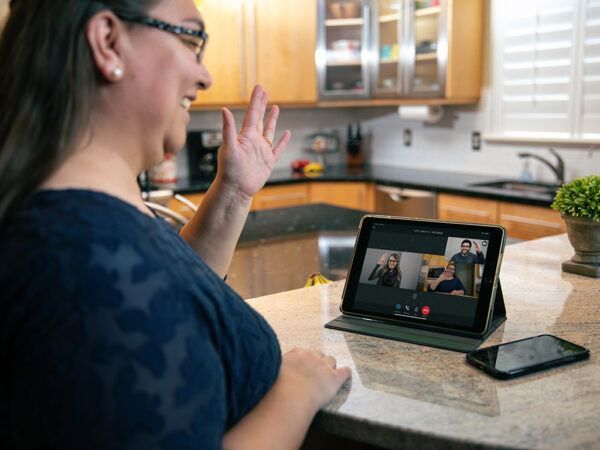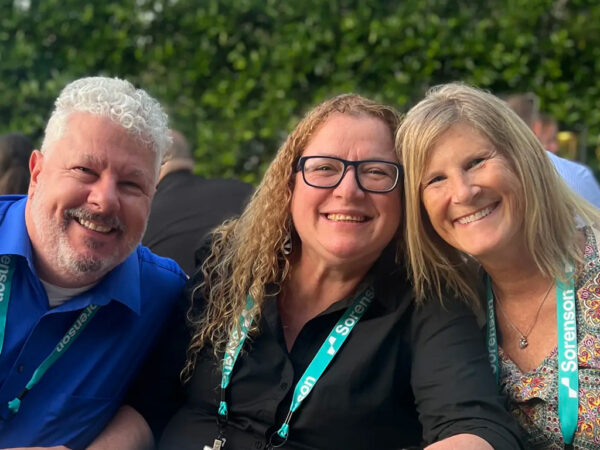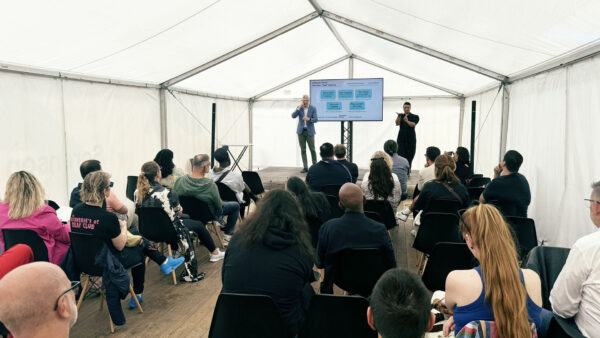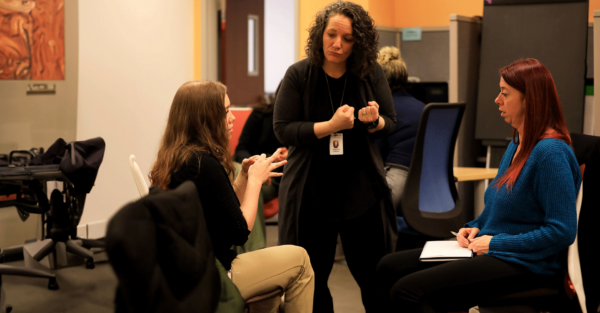Debunking 6 Common Myths about Hearing Loss

No Value (acf:field_669fe7fdb55ef)
Many people don’t start thinking about hearing loss until they or someone they love starts to experience it. It’s no surprise, then, that hearing loss is often misunderstood, even by individuals with first-hand experience.
In this article, we’ll look at some of the most common myths and misconceptions people have about hearing loss and its impact on your life.
Myth: Louder is always better for people with hearing loss
This is perhaps the most pervasive misconception about hearing loss out there. How often do you tell someone that you have hearing loss, so they immediately just raise their voice to nearly a shout?
On its face, this doesn’t seem like such an unusual assumption to make — that hearing loss is equivalent to lowering the volume. While loudness can contribute to hearing, in truth, effectively combatting hearing loss is often much more complicated than simply increasing the decibels.
Some people with hearing loss may have difficulty picking out words, especially in crowded or noisy environments. They may have trouble with specific frequency ranges, meaning that higher-pitched voices are harder to understand. It’s common for people with progressive hearing loss to struggle with consonants while still being able to distinguish vowel sounds.
Myth: Hearing loss is an inevitable part of aging
Thinning or greying hair, advancing skin wrinkles, decreasing muscle mass — these are all common signs of aging. Loss of vision and hearing are also often lumped in with these signs, but is that fair?
Hearing loss is more prevalent among older populations than younger people, with about a third of U.S. residents ages 65 to 74 reporting some hearing loss. However, that doesn’t mean that hearing loss is inevitable — 33% is a far cry from 100%, after all.
That’s why it’s important to take steps to reduce your risk of hearing loss regardless of your age and even if you’re already experiencing some level of hearing loss. Check out these 5 daily habits you can pick up to help you avoid further hearing loss.
Myth: Hearing loss doesn’t impact the rest of your health
It’s tempting to think of hearing loss as a stand-alone issue that can be easily overcome. However, losing one of your senses after having relied upon it for most of your life can have some major impacts on the rest of your body.
The most notable effects take place in your brain. As your hearing goes, listening to and understanding speech begins to take more mental energy. Some research suggests a link between hearing loss and faster brain atrophy — also called “brain shrinkage.” Some amount of atrophy occurs naturally with age, but it is generally a very slow process.
Another potential complication from hearing loss is social isolation. As communication becomes more difficult, many people start to avoid interactions. Unfortunately, isolation is linked with a host of its own health complications, including an increased risk of dementia.
Hearing loss can even impact your ability to balance due to reduced auditory signals that help inform your spatial awareness.
Myth: Cochlear implants are only for young people
For individuals with severe hearing loss that disrupts normal conversation and who rely on lip reading to understand people, even when wearing hearing aids, cochlear implants may offer a solution.
Unlike hearing aids, cochlear implants send the signal from the receiver directly to the cochlear nerve. This type of hearing does take some getting used to, which is why many people with cochlear implants get them at an early age.
However, that does not mean that older adults with progressive hearing loss don’t qualify. Most experts agree that the most important qualifying factor is instead how long a patient has been experiencing severe or profound hearing loss. The sooner they get the implant, the easier it’ll be for them to adjust to it.
Myth: Hearing aids may damage your hearing
It’s understandable for people dealing with hearing loss to be concerned about further damage. Avoiding loud noises is one of the best ways to prevent further hearing loss, and the primary function of hearing aids is to amplify incoming sounds, so it’s not such a leap to wonder whether they could potentially be dangerous.
Fortunately, hearing aids aren’t a sound source you need to be worried about. In fact, properly fitted and adjusted hearing aids won’t amplify sounds to levels that could be damaging. So even if you have them cranked all the way up, your ears will be safe.
Many modern hearing aids can be programmed to amplify the specific frequencies you have trouble hearing, and some can even adjust to different sound environments. Learn more about advanced hearing aid technologies in our blog post: Evolution of Hearing Aid Technology.
Myth: Hearing loss only affects older people
While aging is the most common cause of hearing loss, there are plenty of ways hearing loss can, and does, happen to people of all ages.
Conductive hearing loss occurs when something prevents sound waves from reaching the inner ear. This could be hardened and compacted buildups of earwax (a good reason to avoid using cotton swabs to clean your ears), growths, or foreign objects getting stuck in the ear canal.
Sensorineural hearing loss is the type that more often comes with aging. This type of hearing loss can also be a side effect of certain medications or health problems like meningitis, Menier’s disease or diabetes.
Overexposure to loud noises can also lead to sensorineural hearing loss. In fact, according to a report from the CDC, about 20% of people in their 20s have some degree of hearing loss. This may be caused by overexposure to noisy environments, or even too much time listening to headphones.
Related articles
Deaf Community
News
News and updates about Sorenson VRS products and features and the Deaf community
Hearing Health Providers News
Hearing loss news and trends for hearing health professionals
Hard-of-Hearing
News
News and updates about living well with hearing loss and getting the most out of CaptionCall and CaptionCall Mobile

No Value (acf:field_67911dacbb423)

No Value (acf:field_67911d8bbb421)













































